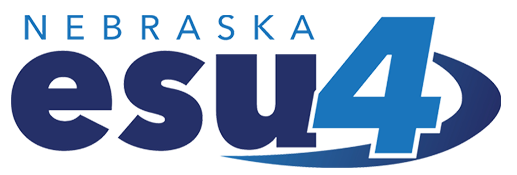4012: ESU Meal Program and Meal Charges
Meal Program. Except as provided below for the Learning Center, the ESU will make a meal program available to students. The cost of the program will be determined by the Administrator so as to make the program as nearly self-supporting as possible. With board approval, the ESU may contract with a private company or corporation for the management and/or provision of the program.
The ESU will notify the families with children attending school of the current guidelines for free or reduced-price school meals. A copy of the complete regulations and procedures regarding reduced-price and free meals shall be available from the student’s home district. Families may apply for free or reduced-price school meals at any time during the school year.
Payment Options. Families my pay for school lunches using cash or check.
Meal Charge Policy. The ESU will notify students and their families of the policy for Charged Meals, meaning meals received by a student when the student does not have money in hand or in his or her food account. This policy applies to students who receive meals at the free, reduced, or full rates.
Notice of this policy must be provided in writing to all households at the start of each school year and to households that transfer to the ESU or its programs during the school year. Notice may be provided through the student handbook, student registration materials, online portal used to access student accounts, direct mailing or e-mail, newsletter, the ESU website, and/or any other appropriate means. Notice of this policy will also be provided all ESU staff responsible for the enforcement of it, including food service professionals responsible for collecting payment for meals at the point of service, staff involved in notifying families of low or negative balances, and other staff involved in enforcing any aspect of this policy.
The ESU’s policy on charged meals is:
If a student has no funds available to pay for a meal, the student will be provided up to five limited “courtesy meals,” such as a plain sandwich. Thereafter, if a student has no funds available to pay for a meal, no food will be provided.
Students who qualify for free meals will not be denied a reimbursable meal, even if they have accrued a negative balance from other food purchases. ESU staff may prohibit any students from charging a la carte or extra items if they do not have cash in hand or their account has a negative balance.
If a student repeatedly lacks funds to purchase a meal, has not brought a meal from home, and is not enrolled in a free meal program, the ESU will use its resources and contacts to protect the health and safety of the student. Failure or refusal of parents or guardians to provide meals for students may require mandatory reporting to child protection agencies as required by law.
Collection of Delinquent Meal Charge Debt
The ESU is required to make reasonable efforts to collect unpaid meal charges. The administrator or his or her designee will contact households about unpaid meal charges and notify them again of the availability of the free and reduced meal program and/or establish payment plans and due dates by telephone, e-mail, or other written or oral communication. If these collection efforts are unsuccessful, the ESU may pursue any other methods to collect delinquent debt as allowed by law. Collection efforts may continue into a new school year.
In the event that the Nebraska Department of Education develops a state-level meal charge policy, it shall supersede that portion of this policy.
Learning Center Meal Program
The ESU 4 Learning Center does not operate its own meal program. Students attending the Learning Center have the option of bringing meals from home or purchasing meals from Auburn Public Schools' meal program.
Families who qualify are encouraged to apply for free and reduced lunches. Applications for and information about reduced-price and free meals will be made available from the student’s home district.
If a student has no funds available to pay for a meal, the student will be provided up to five limited “courtesy meals,” such as a plain sandwich. Thereafter, if a student has no funds available to pay for a meal, no food will be provided.
If a student repeatedly lacks funds to purchase a meal, has not brought a meal from home, and is not enrolled in a free meal program, the ESU will use its resources and contacts to protect the health and safety of the student. Failure or refusal of parents or guardians to provide meals for students may require mandatory reporting to child protection agencies as required by law.
Adopted on: June 12, 2017
Revised on: April 8, 2019
Reviewed on: ________________________
Revised on: August 8, 2022
